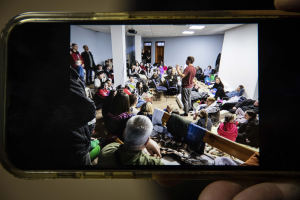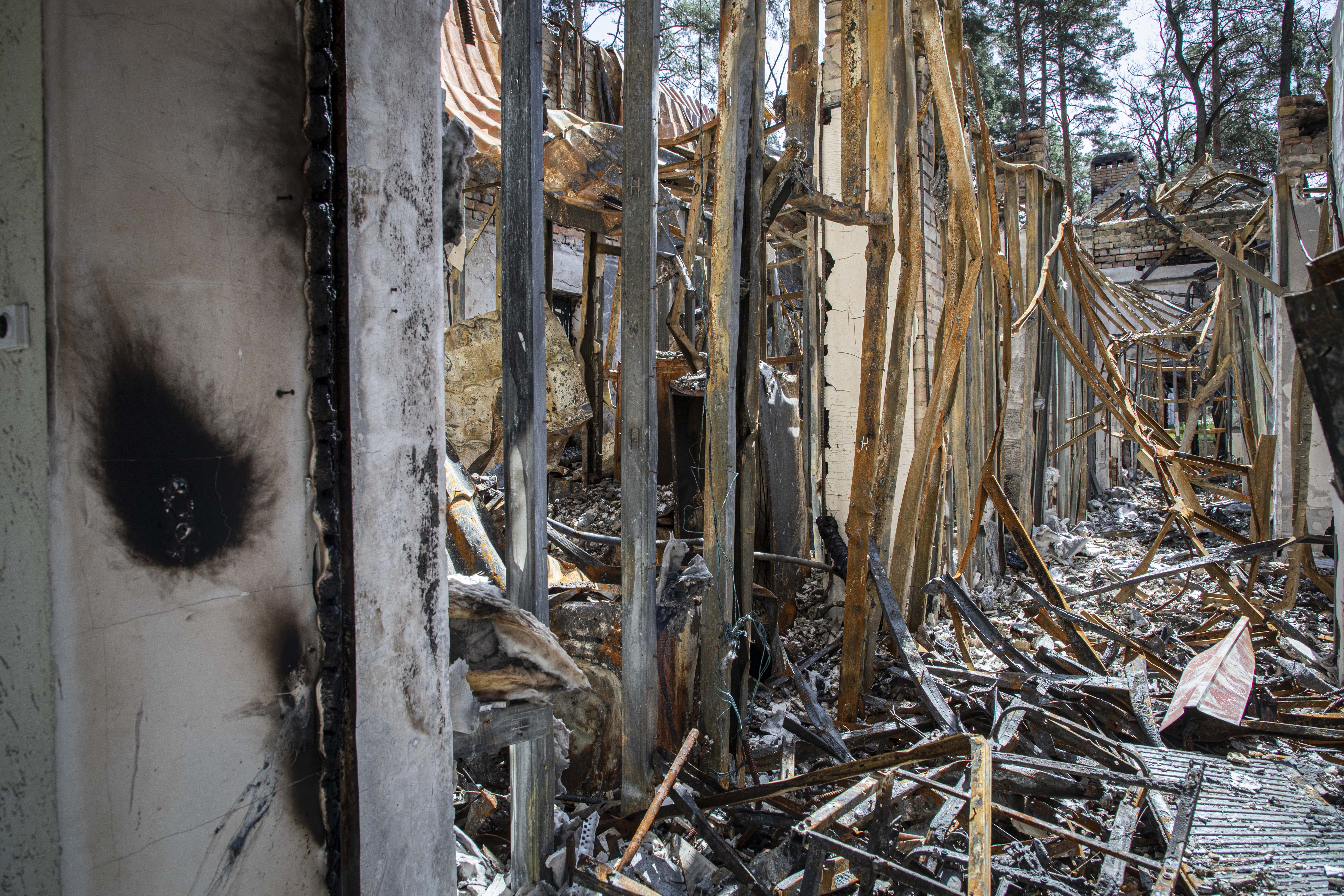
Kyiv: The United Nations World Food Programme today stated that residents of Ukrainian cities surrounded by Russian troops face starvation and sixty per cent of them cannot provide food for themselves.
The WFP called for unimpeded access to families trapped in conflict areas and encircled cities in Ukraine, saying lack of access was the biggest obstacle to its life-saving operations in the war-torn country.
“We’re calling on everyone to give us the access we need to reach the people in besieged cities,” WFP Executive Director David Beasley said at the end of a three-day visit to Ukraine. “It’s one thing when people are suffering from the devastation of war. It’s another thing when they’re being starved to death.”
The encircled city of Mariupol in southern Ukraine is thought to be running out of its last reserves of food and water. No humanitarian aid has been allowed into the city since it was encircled more than two weeks ago. To the west, the city of Mykolaev remains unreachable due to active conflict in the area. WFP is also concerned about several cities in the east.
WFP has so far delivered food assistance to 1.4 million people in Ukraine and is ramping up to reach 2.3 million people this month. But getting safe access to cities like Mariupol, where more than 100,000 people are believed to be trapped, will be key.
WFP this week expanded food assistance operations to areas that until recently were on the war’s front lines. In towns such as Bucha, Hostomel, Borodyanka and Irpin, near Kyiv, WFP is now distributing boxes of pasta, rice, canned meat and cooking oil to traumatized survivors amid the rubble of their former homes.

WFP chief Beasley went to Bucha on Thursday to see first-hand the operations being carried out in the area with the help of local church communities. He also spoke with women and children in a nearby centre for displaced people.
“I am shocked. The horror of war is so visible here and I shudder to think what these people have been through,” he said after walking through streets littered with unexploded mortar shells and visiting a bombed-out orphanage. “But I see hope. I see a community working with energy to clean up and rebuild. We need to support that process.”
WFP is scaling up its response to the conflict in Ukraine on a “no-regrets” basis, giving out food and assistance very broadly, with the goal of eventually supporting 6 million people caught up in the world’s fastest-growing humanitarian crisis. Families in conflict-affected areas are receiving food parcels similar to those distributed in Bucha. Meanwhile, in areas where markets are functioning, cash is being distributed so families can buy what they need.
Over 7 million people are displaced inside Ukraine and the pre-conflict supply chain systems for feeding the country’s population have broken down in many areas. WFP estimates one-third of the people in the country and more than half (60 per cent) of internally displaced people are worried about finding enough to eat.
The conflict in Ukraine is also triggering a wave of collateral hunger elsewhere in the world. Global food prices have increased sharply since the onset of the conflict and are now at an all-time high. These hikes are expected to further limit access to food for millions of people who are already under stress because of food inflation in their countries.
– global bihari bureau





